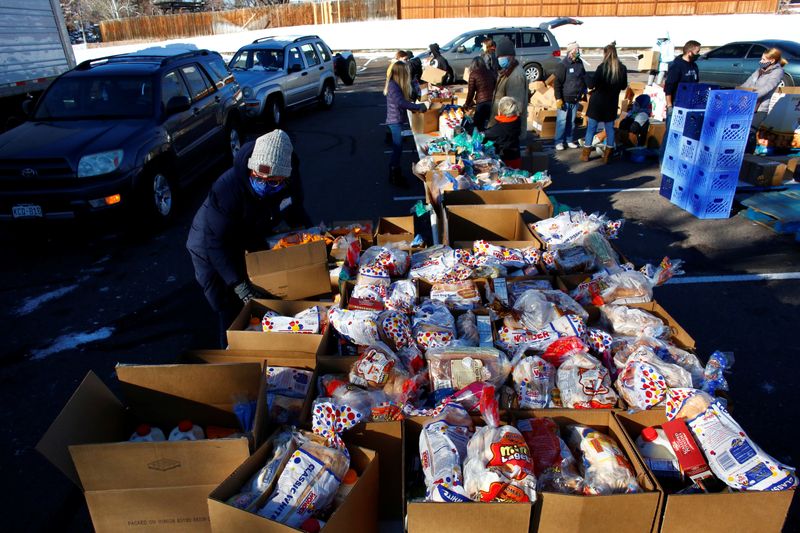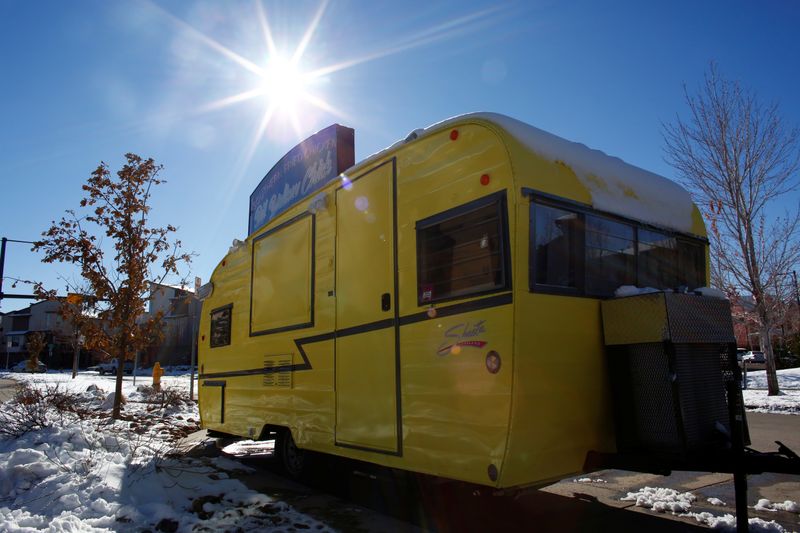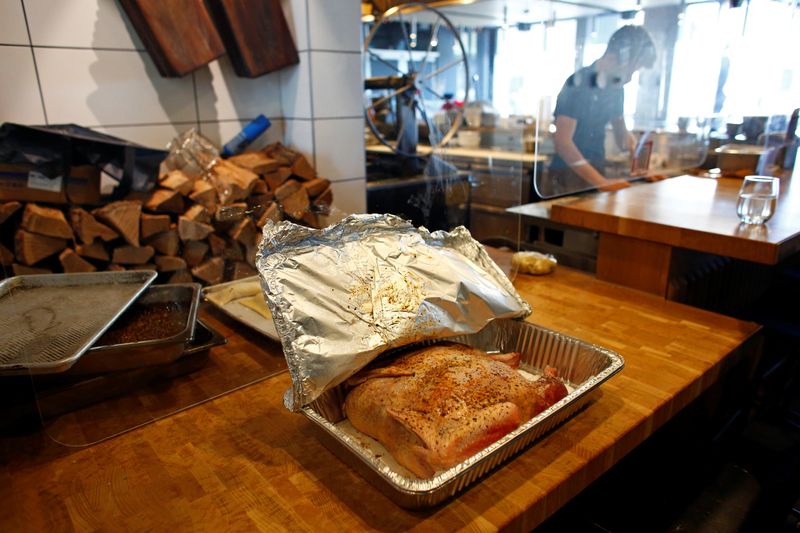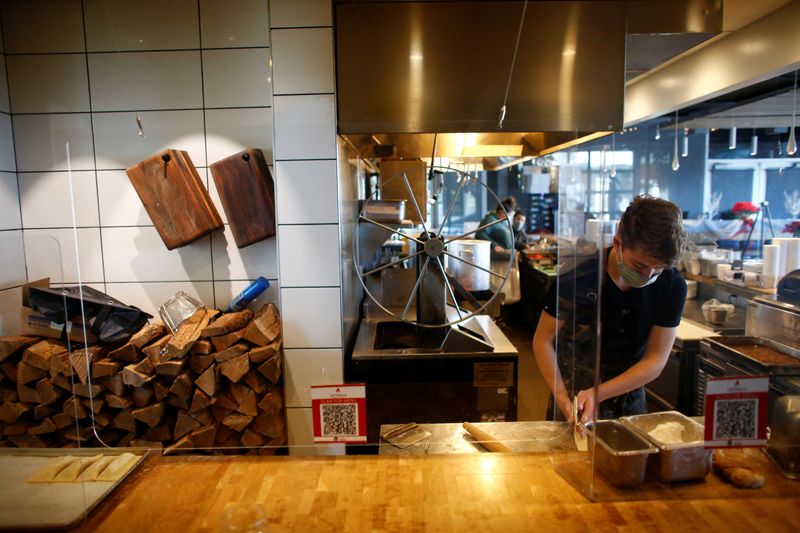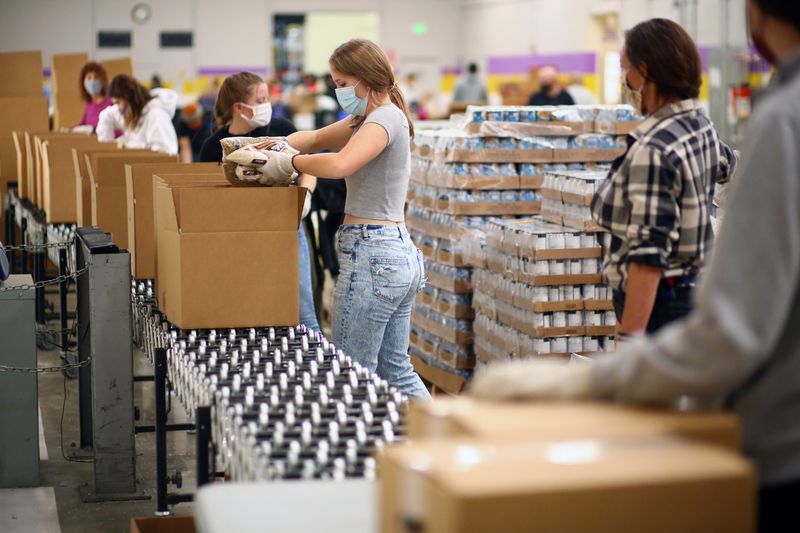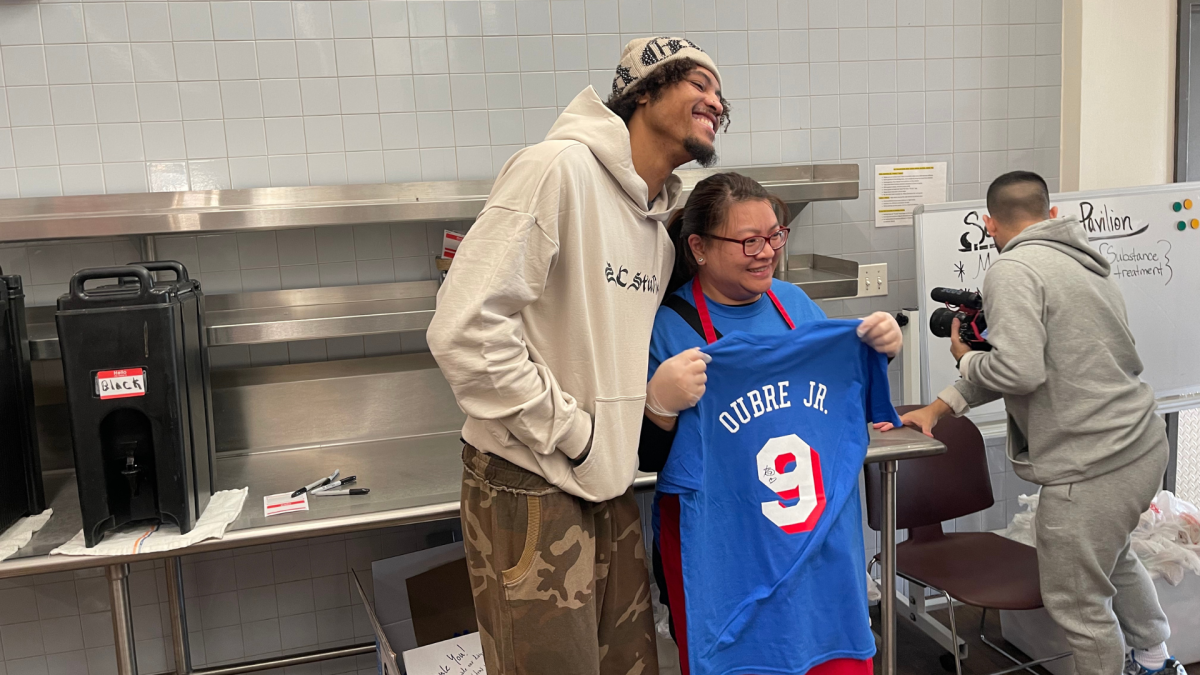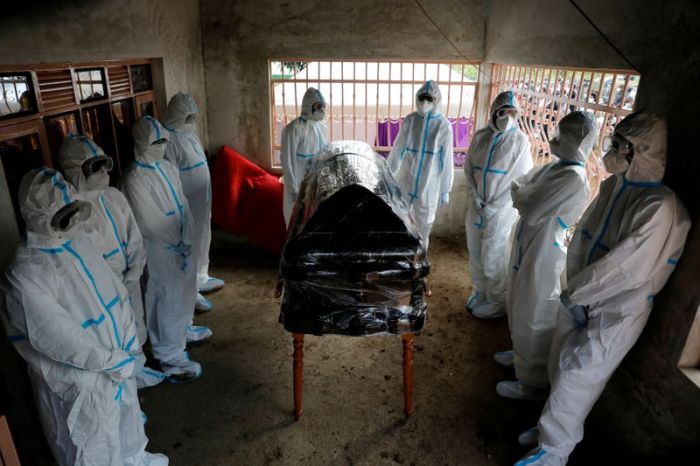SAN FRANCISCO/DENVER (Reuters) – The United States is having a Thanksgiving holiday like no other.
More than 20 million people are on some form of unemployment insurance, and a fresh wave of layoffs is coming, as restaurants and other in-person businesses close amid a huge jump in novel coronavirus infections that is filling hospital beds.
Although travel is discouraged by health officials, millions have done so anyway, raising fears of more infections to come. Wealthier Americans insulated from the economic downturn and those hit hardest by it are preparing for the yearly feast on Thursday in disparate ways.
The U.S. recovery from the pandemic has been remarkably uneven, with some Americans working from home, saving money, and spending lavishly online, and others struggling to pay for rent and groceries after their jobs evaporated.
That’s especially so in tourism-dependent states like Colorado, which drew nearly 90 million visitors in 2019, thanks to its Rocky Mountain resorts and vast national parks. Since the coronavirus hit, the number of unemployed in the state has more than doubled, to about 200,000, and the number employed dropped 5%.
Among Colorado’s lowest-paid workers, those who make under $27,000, employment fell 18%, according to data collected by Opportunity Insights, a collaboration between Harvard University, Brown University, and the Gates foundation. In the leisure and hospitality industries, employment is down about 23%.
Graphic: Got job? Depends on what you earn – https://graphics.reuters.com/USA-ECONOMY/THANKSGIVING/jbypredreve/chart.png
Meanwhile, sales of luxury homes, those over $1 million, have boomed in Denver and other metros as work-from-home tech industry executives seek more space.
The lopsided economy is playing out at restaurants and foodbanks throughout Denver this Thanksgiving.
7,500 FREE FROZEN TURKEYS
Food Bank of the Rockies is giving away Thanksgiving turkeys this year for the first time in recent memory.
They were easier to get, thanks to a turkey glut caused by fewer families doing big dinners and fewer companies distributing birds to their employees, CEO Erin Pulling said.
The organization also prepped 1,200 Thanksgiving meals and provided food for thousands of holiday food boxes distributed by its partners.
“I don’t know that even with this volume of food, I’m not sure we’re meeting the need,” Pulling said. Some 30% to 40% of families accessing the aid have never needed help with food before, she said.
Last month the Denver-based organization distributed a record 10 million pounds of food, up from its pre-crisis monthly average of 5.5 million pounds. To manage the extra work, she’s increased her temporary and permanent staff by about 40%, to 178 people.
“When COVID hit, we thought it would be three to six months and we’d get back to normal. Three months in, we thought six to 12 months. Now, we think maybe two years,” Pulling said. “We are expecting this will be a long-haul effort.”
4,000 GIFTED PIES
Denver chef Alex Seidel has experienced the uneven hit of the COVID crisis first hand. His high-end farm-to-table restaurant Fruition is scraping by this year with the help of loyal neighborhood fans. For Thanksgiving customers can pick up sides like a $19 dish of wild onion stuffing or an $11 serving of cranberry relish.
His lower-priced grilled chicken chain Chook, which will open its third outlet next month, sold out of its $60 Thanksgiving meals for four. Meanwhile, he’s had to close his downtown eatery, Mercantile, because of the drop in transit through Denver’s Union Station. The decision put his co-owned bakery Fudmill, which produces pastries for his eateries, into a bind.
Until, that is, he got an order for 4,000 pumpkin, apple and pecan pies from Centura Health, Colorado’s largest healthcare provider, which gave them to all staff at two of its Denver-area hospitals. “That’s pretty much going to save this year,” Seidel said.
St. Anthony Health Foundation executive director Carrie Bach, said the drive-by pie giveaway was meant to boost the morale of nurses, doctors and other caregivers inundated by COVID-19 cases.
THE $200 TURDUCKEN
Last week chef Elise Wiggins laid off most of the staff at her Italian restaurant Cattivella after Denver closed indoor dining.
Then the Louisiana native deboned 50 chickens, placed them inside of 50 ducks and then inside of 50 turkeys. These French-Cajun Thanksgiving specialties feed eight to 12.
Wiggens’ turduckens, sold for $200 each, will tide her over as she gets her next project underway – a 1962 Shasta camper converted into a food truck. Starting Friday, the day after Thanksgiving, she will begin serving up Southern fried chicken, biscuits, red beans and all the sides to residents of and visitors to the upscale neighborhood built on the site of the old Denver airport.
“We are in warp drive to get Little Chick open,” she says of the food truck, which will be parked near her now mostly dormant restaurant. “These turduckens will really really help financially – that’s a good chunk of change.”
(Reporting by Ann Saphir and Kevin Mohatt; Editing by Heather Timmons and Grant McCool)

